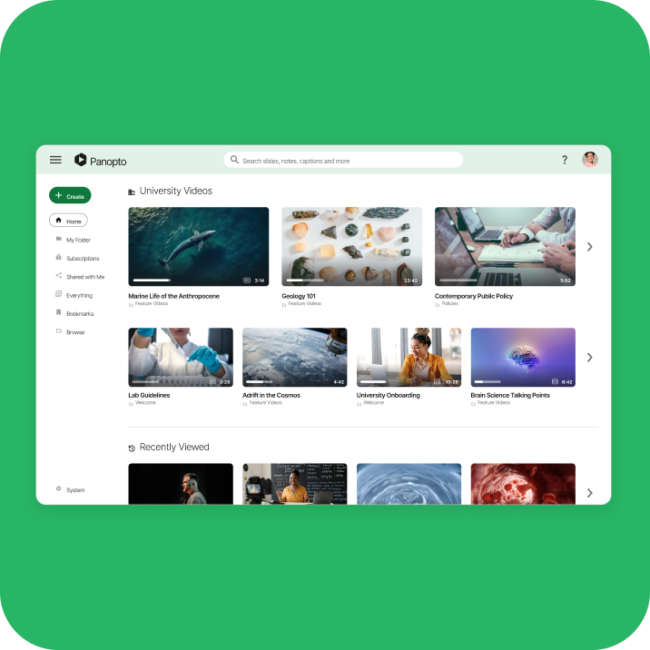- Academic Technology
Implementing Lecture Capture At Scale – Three Top Tips From The University of Exeter
In this guest blog post, Andy Spedding, IT Project Manager at the University of Exeter gives his top three tips on how to manage a successful large scale roll out of lecture recording based on their experience of implementing Panopto.
The University of Exeter has had a lecture capture system in place for several years. While we were definitely convinced about the benefits of capturing our lectures, we decided we wanted a newer, more flexible recording solution which offered greater functionality and the ability to scale in a more effective way. So, in 2015, after conducting a thorough tender process, so we chose Panopto as our new video platform.
The university ran a two-phase implementation of the solution. During Phase 1, which took place in the summer of 2016, Panopto was installed in 47 main lecture theatres across our 5 campuses in Devon and Cornwall. As part of this phase, the institution implemented an automated bespoke interface between Panopto and our timetabling system provided by Scientia.
I took over as IT Project Manager in October 2016 to run Phase 2 of the project. This involved making a further 91 seminar rooms capture-ready and took place in the summer of 2017. In addition to rolling out the extra rooms, we also implemented an automated interface between Panopto and our VLE, Moodle.
The result of this process is that we now we have a seamless end-to-end way to schedule recordings and post them to our VLE without academics having to do anything. Best of all this has been implemented campus-wide so is available to any staff member that wants to take advantage of it.
What we learned – my top three tips
Having managed this significant lecture capture project at the University, we learned many things along the way and I wanted to share my top three tips with you.
1. Involve your academics early on
It is critical to get buy-in from the academic staff right at the beginning of the process. This involves getting your communications spot on. They need to know how the system works, how to use the AV equipment to optimise recordings – particularly the use of lapel microphones for best audio capture and how they can opt in or opt out of being recorded. By clearly communicating how to use the platform you will prevent resistance that may form if academics don’t feel well informed.
2. Use evidence to reassure academics about the benefits of recording lectures
You should try to persuade your academics that Panopto does not adversely affect lecture attendance, and use evidence to back that up. There are a number of studies that have been carried out that show lecture recording doesn’t lead to a huge drop off in attendance as many academics fear. At Exeter, the drop off in lecture attendance was small and we felt that the benefits far outweighed any negatives. Many students cannot attend all their lectures for valid reasons, and Panopto provides a safety net so they can keep up to speed on their course.
3. Make sure you schedule the rooms designated for lecture capture implementation in advance!
While my first two tips are more about cultural factors that arise when you implement a new technology, my last tip is highly practical. When rolling out Panopto across your estate, make sure you get your rooms booked out well in advance for AV installations and stick to them like glue! We had a lot of our bookings moved due to the need to accommodate conferences or other events. This meant we had to continually revise our installation window over the summer. Things like this can cause overruns in the project, so try to plan ahead as much as possible to ensure that things run smoothly.
Final thought
Our students love Panopto, which we see really clearly when we look at Panopto’s analytics. They tell us it is an important pedagogical tool for writing up lecture notes and later revision, and our students with learning difficulties rely on it heavily too. Viewing usage statistics are going through the roof, which has actually meant we’ve had to get additional usage hours to keep up with student demand for the recordings! Crucially, on the whole, our academics also like it very much and think it adds a great deal of value to our students’ learning experience here at Exeter.


